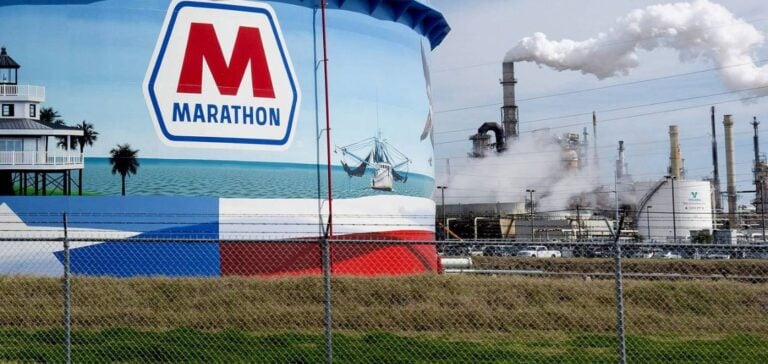The recent financial performance of Marathon Petroleum Corporation (MPC), one of the largest independent refiners in the United States, highlights an optimal management strategy for its refining capacities. By focusing on increased refinery throughput and high utilization rates, the company has navigated a transforming sector while capitalizing on market dynamics.
Increased Refinery Throughput: A Profitability Driver
The increase in refinery throughput—the volume of crude oil transformed into petroleum products like gasoline and diesel—has been a key profit driver for Marathon Petroleum. By raising throughput, MPC meets growing demand for refined products, particularly amidst volatile supply and price fluctuations. To achieve this increased volume, Marathon tapped into lower-cost crude oil sources, thus maximizing margins while remaining competitive in an evolving global market.
This volume-focused strategy allows Marathon to seize market opportunities, especially when supply is tight, and prices are attractive. By adjusting supply and responding quickly to shifts in demand, the company ensures high profitability and resilience amid market instabilities.
High Utilization Rate: Resource Optimization
In addition to increasing throughput, Marathon Petroleum posted one of the highest utilization rates in the industry. This rate, reflecting the proportion of production capacity in use, minimizes downtime and optimizes fixed costs by spreading them across a larger production volume. In an environment where margins are under pressure, an optimal utilization rate is crucial to maintaining competitive production costs.
Marathon achieved this high rate through proactive maintenance and meticulous operational management. By anticipating maintenance needs and ensuring continuous operations, the company limits costly interruptions. This proactive approach, combined with rigorous resource management, contributes to improved net margins, strengthening investor confidence.
Market Context and Adaptation Strategies
Marathon Petroleum capitalized on a favorable market context for refining margins in an environment marked by supply disruptions and sanctions affecting certain oil-producing countries. This situation led to higher prices for refined products, from which Marathon benefited while keeping production costs under control. By diversifying its facilities and sources of raw materials, MPC positions itself in geographically advantageous markets and leverages preferential tariffs based on regional supply and demand variations.
With strategically distributed facilities, the company can quickly adjust production and capitalize on the most profitable segments of the global market, strengthening its competitive position and financial results.
Challenges and Future Prospects
Despite encouraging financial results, Marathon Petroleum faces structural challenges. The company must adapt to increasing environmental regulations and pressures to reduce the carbon footprint of the refining sector. These demands could require Marathon to invest in decarbonization technologies or sustainable infrastructure, which could weigh on short-term margins.
Moreover, the shift towards renewable energies and the decline in fossil fuel consumption represent potential risks for the sector. Marathon Petroleum may need to consider investments in more sustainable energy solutions to diversify its portfolio and mitigate the risks associated with hydrocarbon dependency.
Thus, although Marathon Petroleum has effectively leveraged its refining capabilities and asset management, future challenges call for strategic adaptation to the energy transition and regulatory requirements.






















